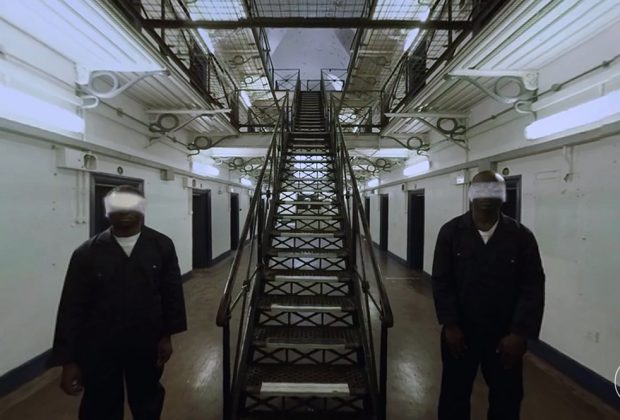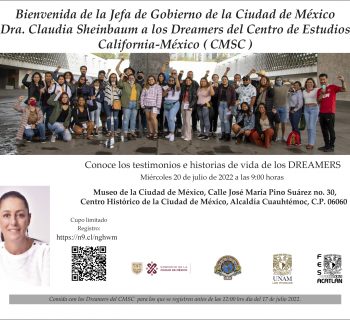http://www.nytimes.com/2016/12/19/opinion/indefinite-immigrant-detention-opdocs-vr.html
The New York Times Op-Docs is presenting a virtual reality film, “Indefinite,” about the indefinite detention of immigrants in Britain. To view it, either watch in the video player or for the full experience use the NYT VR app on your mobile device.
Tonight, more than 40,000 immigrants — men, women and children — will sleep in county jails, federal incarceration centers and privately run prison facilities in the United States. They are not being locked up as a form of punishment; they are behind bars because they are defending themselves against deportation. Many will ultimately prevail and stay legally in the United States. A large majority of them have been incarcerated without any hearing, and have no way of knowing when their detention will end.
The Op-Docs virtual reality film “Indefinite,” which documents similar practices in Britain, shows how indefinite detention imposes hardship and suffering on incarcerated immigrants, their families and communities. In the United States, countless people are detained unnecessarily for months or even years under similar conditions — eroding our basic constitutional notions of due process and liberty and driving up costs to taxpayers. As a society, we cannot afford this.
Jennings v. Rodriguez, a case the American Civil Liberties Union argued before the Supreme Court on Nov. 30, shows a simple way out of this constitutional and moral crisis: a hearing before an immigration judge.
In recent years, a Federal District Court in Los Angeles and the United States Court of Appeals for the Ninth Circuit both rejected the government’s routine practice of detaining immigrants for months or years without a hearing and held that an immigration judge must conduct a hearing when incarceration became prolonged (presumptively after six months). These rulings gave thousands of immigrants in nine Western states a chance, for the first time, to explain to an immigration judge why they would not pose a flight risk or a danger to the community if released on bond while fighting their cases. And for the first time, the government had to prove to an immigration judge why detention was required for each person based on the facts of each case.
In a great majority of these cases — 70 percent — the immigration court ordered the person released on a bond. Perversely, it turned out that the people with the strongest cases for staying in the United States were detained for the longest periods, because their cases took longer to litigate and adjudicate. People who were locked up for prolonged periods were five times as likely to win their immigration cases than the average detainee.
In Jennings, the government appealed the ruling of the United States Court of Appeals. The evidence the A.C.L.U. presented in the case showed that thousands of people had been incarcerated for no good reason — leaving their families without financial support, hampering their own ability to defend against the government’s deportation case, and suffering from often abominable prison conditions and crushing despair. The record in this case also shows that immigration judges are fully capable of doing their job and making determinations of flight risk and danger.
Nonetheless, the government has stubbornly stuck to its position that it should be permitted to run a regime of prolonged detention without a hearing. This is contrary to a basic constitutional principle: When the government locks someone up, the person must have a hearing in which an independent judge determines whether the government has a sufficient reason for doing so.
For example, the Supreme Court has repeatedly held that an individualized custody hearing is a requirement for involuntary civil commitment cases involving people with serious mental health issues, and in setting bail for people facing criminal charges. The Fifth Amendment’s due process clause does not permit a prosecutor or a police officer to decide unilaterally to keep a person fighting his or her case locked up for a prolonged period. But when it comes to immigrants facing deportation, the government is effectively claiming that power.
When immigration agents seize that power, they make costly mistakes and even willfully abusive decisions. Consider the case of an Ethiopian client of the A.C.L.U., a survivor of torture who had passed the initial hurdle for asylum but who was denied release by immigration agents. Why? The case file shows that the immigration agent handling the case mistook the Ethiopian man for Somali, and then acted on a blanket assumption that “all” Somalis “present a paradigm of deceit” and are categorically untrustworthy when presenting identity information. That is, the agent applied an invidious ethnic profile of Somalis to an Ethiopian man.
Or take the case of Ahilan Nadarajah, an A.C.L.U. client who fled Sri Lanka and sought asylum in the United States. He was incarcerated in an immigration jail for more than five years while he fought his case, even after he twice won his asylum claim before an immigration judge. Today, he is a United States citizen.
Or consider the case of the lead plaintiff in Jennings,
Alejandro Rodriguez, a lawful permanent resident who was brought to the United States as an infant. The government put him in deportation proceedings based on convictions for simple possession of drugs and for joy riding. Mr. Rodriguez was detained for more than three years and was released only after he sued the government. Ultimately, he won his case seven years after his initial arrest.
If the government had its way, he would have been detained for the entire duration of his deportation case, without any hearing to serve as a check on the government’s detention power.
President-elect Donald J. Trump has promised to lock up more immigrants than ever while pursuing mass deportations. If these policies come into effect, more immigrants with claims to lawful status will find themselves incarcerated for months or years while their cases are in legal limbo. In America, we have constitutional guarantees of due process to protect everyone, including immigrants, in order to avoid precisely this kind of injustice.
Cecillia D. Wang is the director of the Immigrants’ Rights Project at the American Civil Liberties Union.
For the video: Darren Emerson is a director, producer and co-founder of the British virtual reality production company VR City and TV production company East City Films. His first VR film was “Witness 360: 7/7,” which screened at Cannes, Docaviv, and the “Virtually There” exhibition at MIT in 2016.







